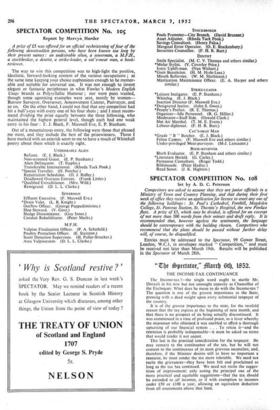"Tbe bpertator," Itiarcb 6tb, 1852.
THE INCOME-TAX CONTINUANCE The Income-tax !—the single word ought to startle Mr. Disraeli in his new but not unsought capacity as Chancellor of the Exchequer. What does he mean to do with the Income-tax ? The question, is one of the gravest importance to the State, pressing with a dead weight upon every substantial taxpayer of the country.
It is of the gravest importance to the state, for the twofold reason that the tax. expires at the beginning of next month, and that there is no prospect of its being actually discontinued. It was commenced in a time of profound peace, as a lever whereby the statesman who obtained it was enabled to effect a thorough upturning of our financial system . . . To retain it—and the retension is probably indispensable—it must be asked on terms that would render it not unjust.
This last is the practical consideration for the taxpayer. He may consent to the continuance of the tax, but he will not consent to the continuance of. its most grievous anomalies; and, therefore, if the Minister desires still to have so important a resource, he must render the tax more tolerable. We need not recite the grievances—they have been felt and proclaimed as long as the tax has continued. We need not recite the sugges- tions of improvement; only noting the principal one of the more practical and equitable suggestions—that the tax should be extended to all incomes, or if with exemption to incomes under £50 or £100 a year, allowing an equivalent deduction from all assessments above that limit.


































 Previous page
Previous page